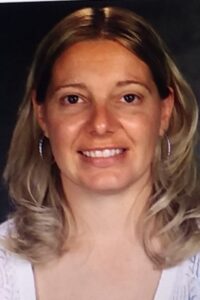UW-Superior
Associate Professor
Special Education
Amanda Zbacnik has a lot of knowledge about the field of special education. She has teaching experience in K-12 schools and, currently, works in higher education as an associate professor of special education and university supervisor who prepares aspiring undergraduate and graduate special education teachers. As a previous special educator, Dr. Zbacnik worked with individuals in multiple disability categories: Intellectual Disabilities, Other Health Impairments, Emotional Behavioral Disorders, Specific Learning Disabilities, Autism Spectrum Disorder, and Multiple Disabilities. As a high school special educator, Dr. Zbacnik focused on transition for students with special needs and collaboration with multiple stakeholders (therapists, paraprofessionals, and community transition agencies). Dr. Zbacnik volunteers in equine-assisted therapeutic activities, is involved with Wisconsin’s Council for Exceptional Children, and just had a co-authored book, “Educators for Diverse Classrooms: A Case Study Approach to Equity and Inclusion in Education” published.
Teaching and Learning Philosophy
My teaching philosophy is multifaceted and aims to transform students though inquiry, reflection, research and action in ways that extend beyond the classroom. Specifically, I believe in: 1. Inclusion. I believe that education is a fundamental human right and that knowledge should be accessible to all students in ways that are non-ableist. As an educator I believe that we should not only incorporate inclusion, but we should model inclusion. 2. Engaged learning. I encourage students to tackle problems creatively, which helps them learn to think outside conventional boundaries to seek deeper meanings and foster intellectual fulfillment. 3. Social Justice. My teacher philosophy is influenced by issues of social injustice. The dynamics of marginalization in the U.S. continue to exist. Our historical accounts have influenced and perpetuated inequalities and marginalization, especially in the field of special education. In a society in which we have racial dominance, assumptions and categories left unchallenged and unlearned, inequalities will continue to be produced and reproduced in teaching practices. In order to combat and challenge these issues, I believe we should deeply understand how we are currently preparing our teachers to be teachers in ways that empower them to question and understand issues around social justice.

